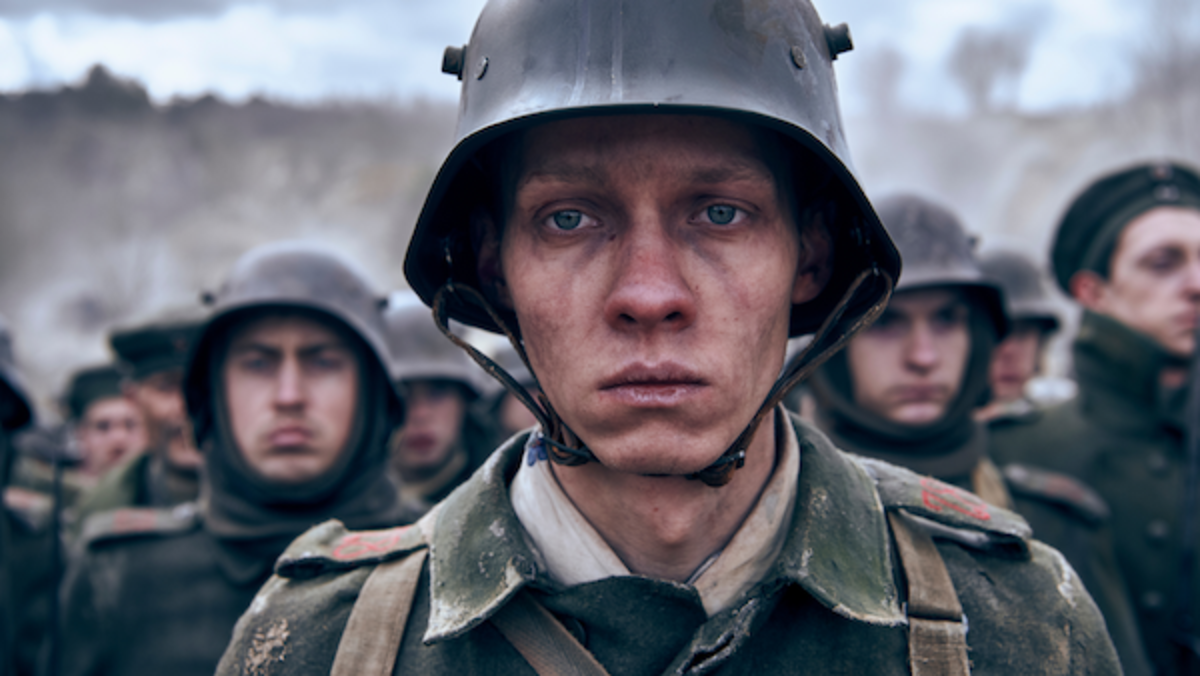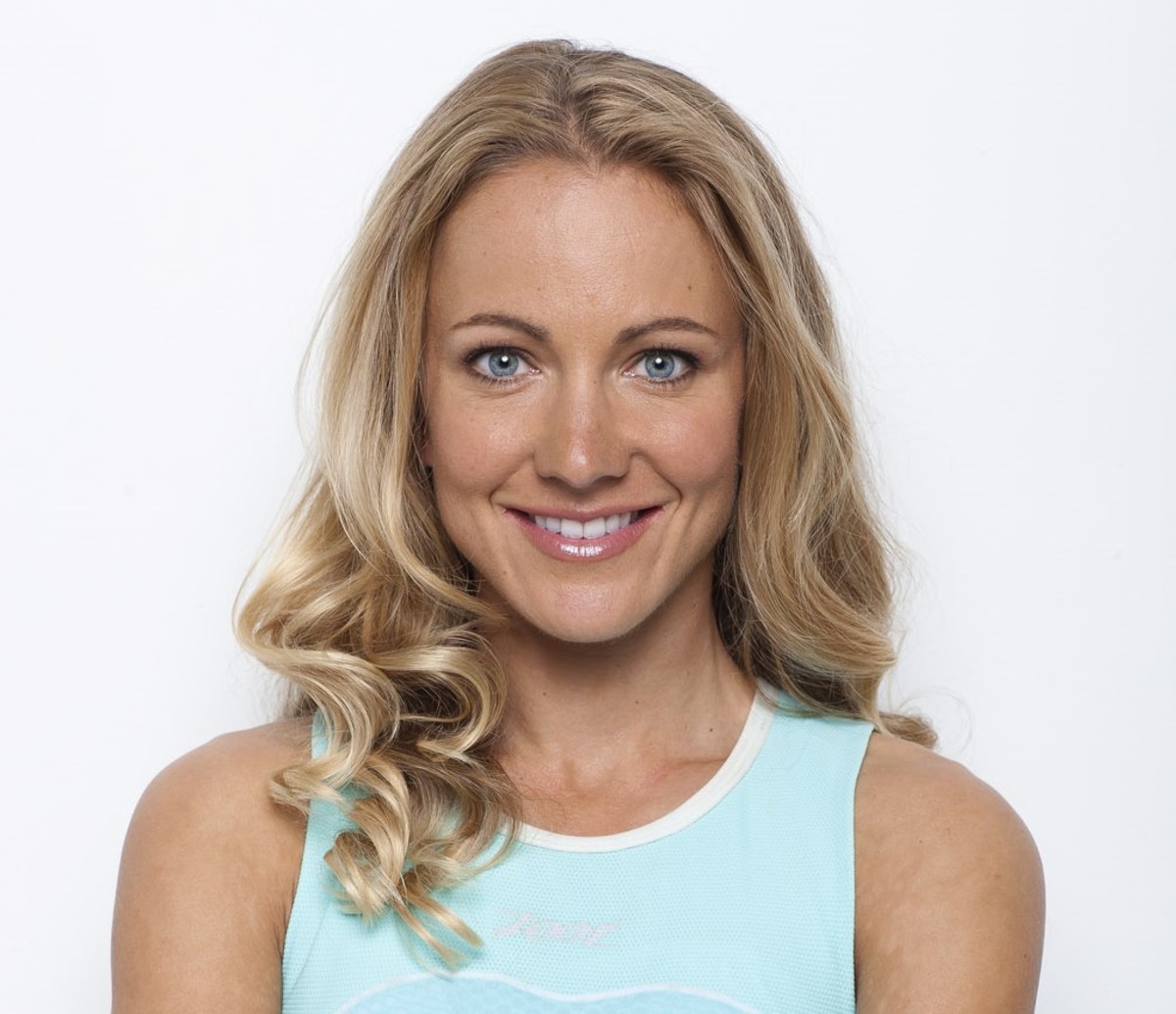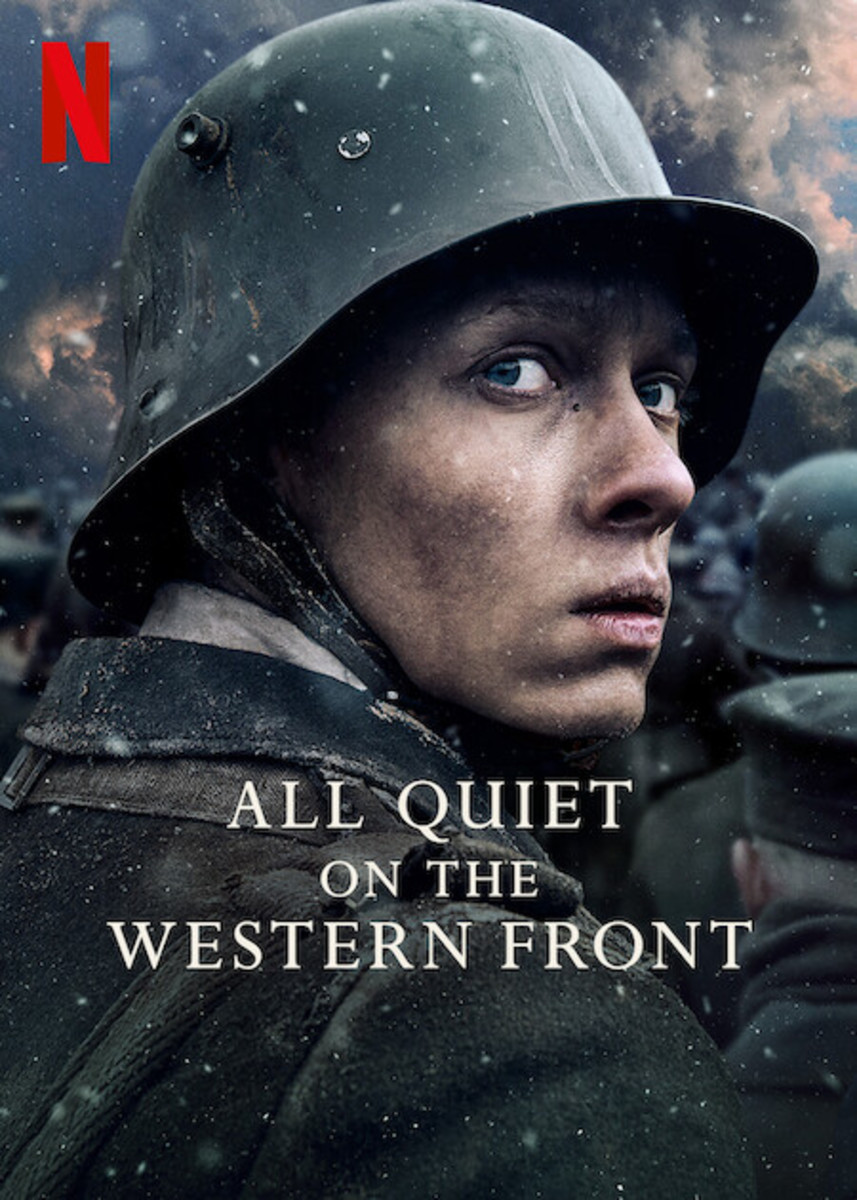Lesley Paterson, along with her co-writers Ian Stokell and director Edward Berger are nominated for Best Adapted Screenplay and Best International Feature Film. She is also an executive producer of the film.
Many writers and filmmakers often say that getting a movie made is like running a marathon. For screenwriter and producer, Lesley Paterson, this hits close to home; she is a world-champion triathlete.
Lesley and I spoke two weeks after All Quiet on the Western Front swept the BAFTA awards, winning seven, including best film, director and adapted screenplay — more than any other non-English-language film in BAFTA history – and less than two weeks before the Oscars. Lesley, along with her co-writers Ian Stokell and director Edward Berger are nominated for Best Adapted Screenplay and Best International Feature Film. She is also an executive producer of the film.
This is the first time Erich Maria Remarque’s antiwar classic novel has been adapted for the screen in its original German. The story follows teenager Paul Bäumer as he enters the army as an enthusiastic recruit and quickly becomes disillusioned by the horrors of the brutal, futile fighting he encounters. Soldiers such as he are expendable pawns to officers safe from the battlefield and who demand the fighting continue even as armistice is only hours away.

KOUGUELL: You and Ian Stokell first optioned the book in 2006. I understand that you used your race winnings to keep the project afloat over the years, even mortgaging your house at one point to hold onto the rights.
PATERSON: Yes. It ended up being 16 years and two months until we premiered it.
KOUGUELL: The book has been adapted twice prior into movies. Why did you feel the need to do another adaptation?
PATERSON: I read the novel when I was in school. For me, it was the dramatic essence of the betrayal of the youthful generation and it hit a chord. Being from Scotland and that underdog mentality, fighting against the upper brass. I connected to that. When I read it again in 2006, I had gone through an undergraduate in drama, and then a master’s degree in theater and film, and I met Ian at that point, and we were doing various pieces together and we directed some scripts. We were in a bookstore together when we saw the novel on sale and we looked at each other, and thought, there’s not been a film made for several years. (Ian was in the British Army in the 1970s, including a deployment in Northern Ireland and the military, his grandfather fought in the war.)

After reading the novel, we had some ideas about how we would want to do it and then we went about to see if anyone had the rights. We’re kind of mavericks in that regard, and you’ll gather that by my athletic career, we thought we’re on the outside, but let’s have it a go. Lo and behold, no one had the rights. It was shocking. Normally studios or producers had rights, and we pitched them and we were lucky enough that they said yes, and my husband and I scrounged together enough money to pay for the option rights.
For us we felt that we could bring something new to this story; it was the historical context because they didn’t delve into that in previous films, which were more direct translations of the novel. We thought it was fascinating because it was not something we learned in our history, especially coming from the winning side, and so we thought we had something different to offer, and then we embarked on adapting it.
KOUGUELL: How did your adaptation process begin?
PATERSON: We bought multiple copies of the novel and delved into it. We tore it apart, put different scenes on the wall, dug into the thematic essence of what the author was trying to say – that was our guiding light. We did a lot of research all around WWI, from the German side, the French side and British side – the whole landscape of the war, that formed basically how we did the adaptation. Then of course we did multiple drafts, there were completely different stories.
We created a dramatic throughline that could carry the narrative with some urgency that the novel does not have because the novel is almost like excerpts of a diary.
KOUGUELL: You mentioned that rather than a literal translation of the book, it’s an emotional translation. Please expand upon that.
PATERSON: When you look at a novel it’s very difficult to see how you can make it cinematic for an audience. We had to drill down into it, looking at the key elements and thematic premises of the book. For Ed, myself, and Ian, it was telling it from the German perspective, and having that sensibility; there are no heroes, war is not an adventure. We wanted the audience to feel that total devastation, feel the arc of that patriotic fervor to the numbness and animalistic tendencies at the end.
KOUGUELL: How did your collaboration process evolve?
PATERSON: When we first optioned the novel it would have been nearly impossible to get this project off the ground because you could not raise the financing for foreign language films. That’s why we initially decided to do it in English with German accents. Furthermore, WWI was not a hot topic to cover; it was not an American war. Cinema was very much about America back then. As the landscape changed, streamers came in, local language was much more regarded, such as Parasite won best picture and foreign film.
Luckily we held on to the option long enough that eventually producer Malte Grunert got the script and he was doing a project with Ed Berger. And they both said, this needs to be told in the German language. We loved Ed’s vision and we thought it was brilliant. We knew this was the right path, given we just spent 14 years with various producers, directors, and money on and money off.
We did a couple of passes on the script together and then Ed, and rightly so, said I need to do my own pass on the script and I need to infuse it with that German sensibility. That was a wonderful learning curve for us as writers; I think Ian and I brought the outside in perspective which gave it that historical context and something unique. But then Ed came on, and gave it that inside-out perspective; the way Germans talk, the way they interact, that sense of shame, and their culture about previous wars.
Ed did his pass on the script in English, then gave it to us, and we had some collaboration on that, and that was translated into German. Because Ed is a co-writer and director, it was somewhat seamless. We are also executive producers on the project, and you put your producer’s hat on and say, if you trust in this director, let him do what they need to do to bring it to the screen.
KOUGUELL: It’s certainly a timely film given all that is happening today.
PATERSON: It’s as relevant today as it was then. As the years rolled on, interestingly, that’s what makes this novel so powerful is the essence of it; the everyman, the betrayal of a youthful generation, the destruction of war, the senseless killings.
KOUGUELL: What tips do you have for writers working on adaptations?
PATERSON: If you are adapting on a basic level, first make sure you have the rights and a good lawyer with the right contacts. Second, read it multiple times, get the essence of it. Adaptation doesn’t mean it needs to be a lesser translation, it’s not a documentary. View it through your own lens and your own experience. Be streamlined with what you want to say; if you say too many things it becomes about nothing. Finding that throughline and finding your angle is really your key.
Continue to go back to the novel. It’s also important to put it down and go back to it. Another key is research, this will spawn more ideas. Don’t do research just for a historical piece there are so many things that can spawn ideas.
KOUGUELL: What has this experience of bringing this film to life brought to you?

PATERSON: It’s given me confidence to follow my dreams and to never give up when people are saying no. You must keep going and stay true to your why; Why is this story important for you to tell? If you can drill down on that, then it’s going to give you the passion to keep going.
All Quiet on the Western Front is now streaming on Netflix.